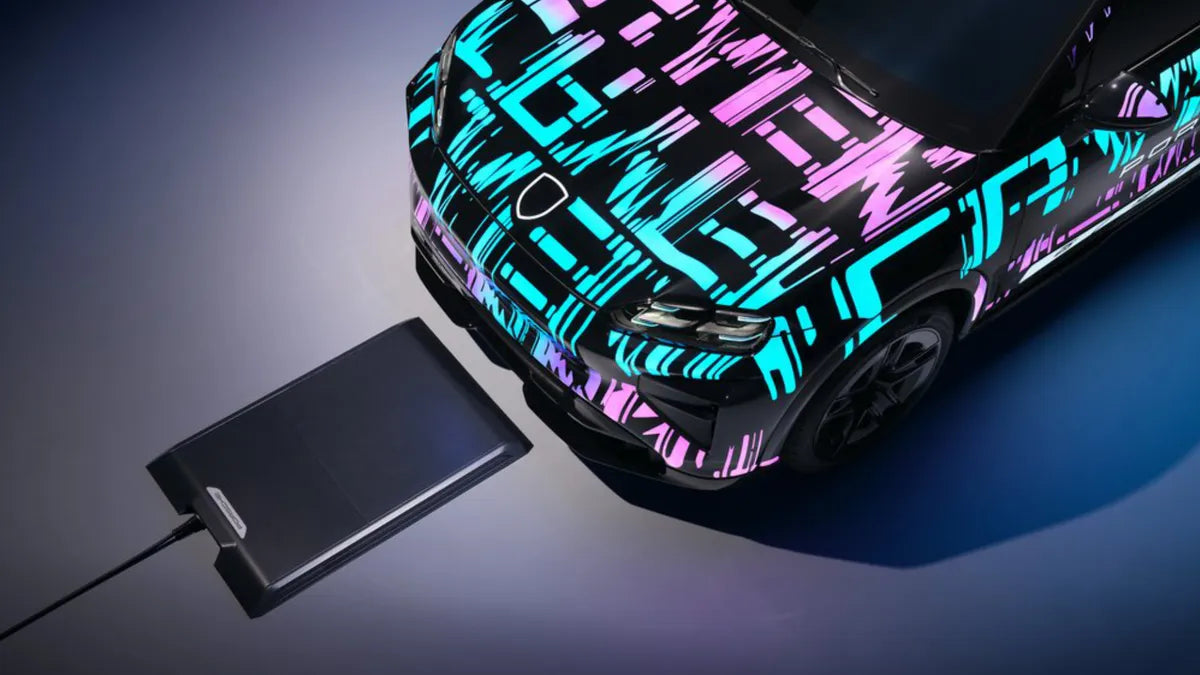Porsche is bringing wireless charging technology to the upcoming all-electric Cayenne, making it possible for drivers to recharge their EV simply by parking over a floor pad. While not the first inductive system ever developed, Porsche says this is the first 11-kilowatt wireless charger that will be widely available to the public.

The Cost of Convenience
The tech is impressive, but it comes at a steep price. At the IAA Mobility Show in Munich, a Porsche representative told Out of Spec Reviews that the wireless charging pad will retail for about €5,000 ($5,885) in Germany when it launches next year. That figure includes VAT, but it’s still nearly 10 times the cost of Tesla’s Wall Connector, which sells for €535 ($630) in Germany and $420 in the United States.
And that’s not the full cost. The Cayenne EV must also be fitted with the hardware needed to accept wireless charging, pushing the total price of the system to just under €7,000 ($8,240).
Why It Might Still Be Worth It
For Porsche buyers, though, this is just one more option among many. Wireless charging removes the hassle of plugging in and eliminates wear and tear on charging connectors, which can sometimes result in expensive repairs. As with most new tech, prices may drop over time as adoption grows.
How the Technology Works
Porsche’s wireless charging system has been designed with both performance and safety in mind:
-
Output: Both single-phase (48 amps) and three-phase (16 amps) versions will deliver up to 11 kW.
-
Design: The floor-mounted charging pad weighs about 110 pounds (50 kg) and connects directly to the main electrical panel—no external box required.
-
Safety: Built-in radar sensors stop charging if they detect metal objects, animals, or people on the pad. The pad is waterproof, despite having a service hatch.
-
Efficiency: Porsche claims 90% efficiency, slightly lower than wired chargers (~94%) but still strong for wireless tech.
-
Cooling: The transmitter pad uses air cooling, while the receiver inside the vehicle is liquid-cooled and delivers DC power straight to the high-voltage battery, bypassing the onboard AC charger.

Coming to the U.S.
While European pricing has been shared, U.S. pricing remains under wraps. A Porsche Cars North America spokesperson said:
“We do not have any U.S. pricing information for either the car or its options at this time. We expect to finalize that shortly before the reveal later this year.”
That leaves two big questions: How much will it cost in the U.S., and will the Cayenne EV include the necessary hardware as standard?
Recommend Reading: Porsche Reconsiders Virtual Gear Shifts for EVs After Initial Pushback








Share:
Canada May Drop Tariffs on Chinese EVs to Aid Farmers and Boost Sales
Volkswagen CEO Criticizes Flush Door Handles, Promises Simpler Designs